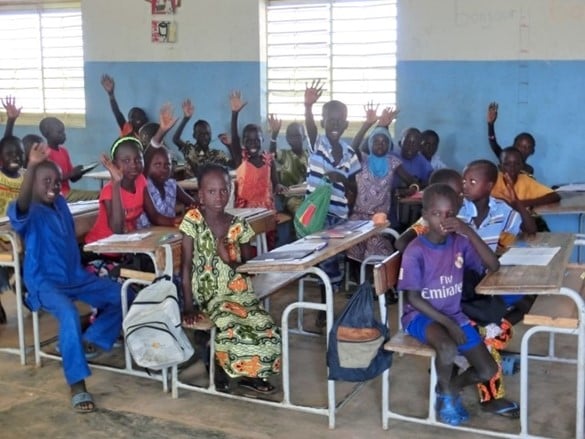
Education advocacy in fragile and conflict affected contexts
How civil society actors in West and Central Africa seek to find solutions to education challenges amidst conflict and political instability
Over the past two decades and more, the West and Central Africa region has become the scene of conflicts of all kinds added to natural disasters. Governments are often unprepared for the consequences of disasters and security crises and sometimes struggle to adapt their education provision. Civil society organisations then find it increasingly difficult to operate and have an impact.
Bringing together civil society organizations with common challenges
In response to the requests expressed by the coalitions, the EOL Regional Management Unit for West and Central Africa organised a learning workshop in Lomé from 26 to 29 September 2023. The workshop brought together some twenty CSO leads from French-speaking countries. The aim was to stimulate reflection and build the capacity of EOL grantees and other actors in the education sector in terms of programme implementation, advocacy and influence in GPE partner countries affected by fragility and conflict in the West and Central Africa (WCA) region.
“In times of crisis, governments tend to shift their priorities. Education is usually underfunded, and in times of crisis this is even more acute. It is important that governments continue to play their role and ensure that children continue to learn in times of crisis.” says the EOL Regional Program Manager Stephanie Mekinda in an interview with the Togo National Television.
Discussing possibles solutions
The regional learning event aimed to look at:
- Understanding concepts, measuring constraints and preparing for interventions;
- Advocacy in emergencies: levels of intervention, issues and feedback;
- Strengthening the Learning Collaborative (LC) and looking ahead to the next stages (2024-2026).
After a briefing and orientation on the first day, the workshop focused on discussion and sharing of experiences. This knowledge was complemented by contributions from other participants, many of whom had long experience of, or lived in, countries in crisis.
Exchange of national experiences formed the core of the activities on the second day, when a series of presentations by national actors helped to capture the specific context of countries in crisis, such as Cameroon, the Democratic Republic of Congo, Chad and Niger, compared to that of less affected countries, such as Madagascar, Senegal and Togo, which are at risk of being included in the list of so-called fragile states.
These presentations of national cases, brought to life through techniques such as world café, were complemented by advocacy simulation exercises organised on the third day with participants divided into groups and some of EOL’s staff.
“We have representation at different levels, we have countries that are not really in crisis yet, I’m thinking of Togo and Benin; it’s true that there are incursions in certain regions, but at the moment they are not classified as being in crisis. It’s important for education actors in fragile areas to share their experiences with these other countries so that they can start thinking about preparation and response strategies. We also want to strengthen networking,” says Stephanie Mekinda.
An outline solution
At the end of the workshop, the key elements of knowledge needed to understand the field of EIE, its standards, tools and use in advocacy were highlighted and, where necessary, contextualised to enable coalition leaders to bring their work more in line with international standards and best practice available in the region. Participants were positive about the prospect of becoming more involved in organisational learning and explored a number of proposals for strengthening their involvement in the dissemination/use of EIE knowledge.
The roadmap produced at the end of this workshop is meant to guide coalitions in emergency preparedness and response. It captures the training and engagement needs and, incidentally, can be an adjunct in defining the coalitions’ learning programme for the period 2024-2026.
The coalitions were amazed to learn the various dynamism around EIE, and realised with satisfaction that there is so much that they contribute to as civil society organizations in providing solutions even in fragile contexts.
“I wish to express my great satisfaction with the results achieved at the end of this regional learning workshop on Education in Emergency Situations…I urged the participants to commit themselves, each in their own country, to the dynamics of advocacy in favour of educational continuity in emergency situations.”
Declared Mr Egbenyimon Eyessi, the President of the Board of Directors of the Togolese National Coalition for Education for All (CNT-EPT).
For more information on the EOL Regional Learning Event on EIE in Togo please read 1a. Rapport EOL- Atelier d’apprentissage de Lomé sur l’éducation dans les pays fragiles et en crise.docx | Powered by Box)
